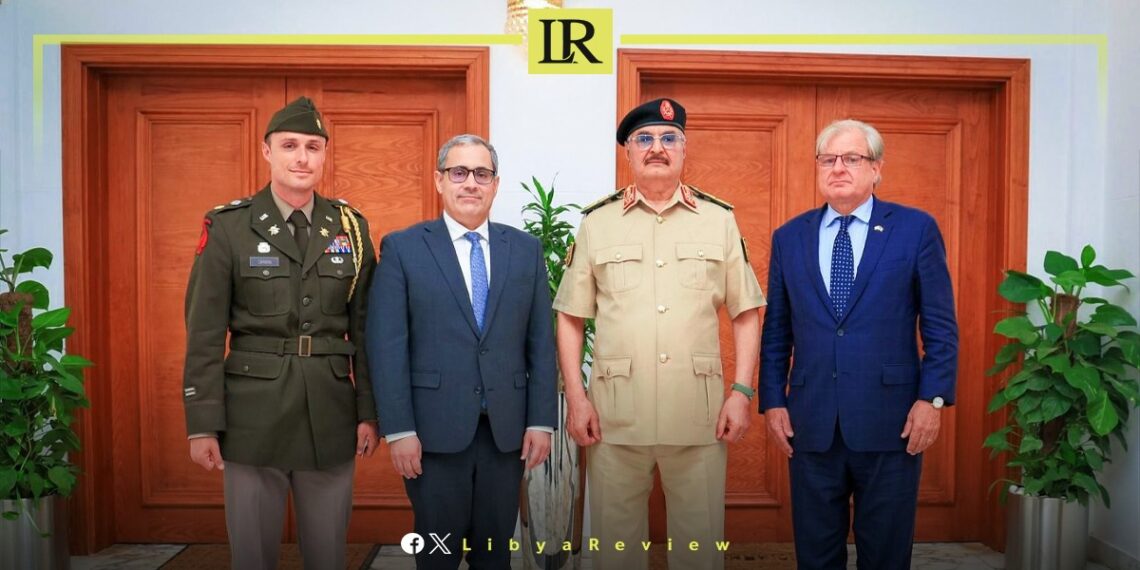On Monday, General Commander of the Libyan National Army (LNA), Field Marshal Khalifa Haftar, welcomed an American delegation led by US Special Envoy to Libya Richard Norland and the US Embassy’s Chargé d’Affaires Jeremy Berndt at the LNA General Command headquarters in Benghazi.
During their meeting, they discussed the latest political developments in Libya, emphasizing the continuous efforts needed to prepare the country for presidential and parliamentary elections.
Both parties stressed the importance of supporting the United Nations Support Mission in Libya (UNSMIL) in reaching consensus solutions that will pave the way for these crucial elections.
The US delegation also highlighted the significant role of the LNA in maintaining security and stability in Libya. They underscored the importance of joint efforts between the LNA and the United States in combating terrorism and extremism.
Libya has been in turmoil since the 2011 uprising that toppled Muammar Gaddafi. The country has since been divided between rival factions, with the Government of National Unity (GNU) based in Tripoli and the Parliament’s designated government in the east. Efforts to unify the country and establish a stable political framework have been ongoing, with the United Nations playing a pivotal role in mediating between the conflicting sides.
The Libyan Political Agreement, signed in 2015, aimed to bridge the divide and create a framework for governance and elections. However, progress has been slow, and Libya remains split along political and military lines.
The upcoming elections are viewed as a critical step towards resolving Libya’s ongoing crisis. However, the political landscape remains fraught with challenges, including the need for consensus on electoral laws, security arrangements, and the participation of various political and military factions.
The recent meeting between Haftar and the US delegation highlights the ongoing diplomatic efforts to prepare Libya for elections and ensure a stable and secure environment.
The emphasis on cooperation in fighting terrorism reflects the broader strategic interests of both Libya and the United States in maintaining regional security. As Libya moves towards potential elections, the role of international actors, combined with internal efforts to achieve political unity and security, will be crucial in determining the country’s future trajectory.


